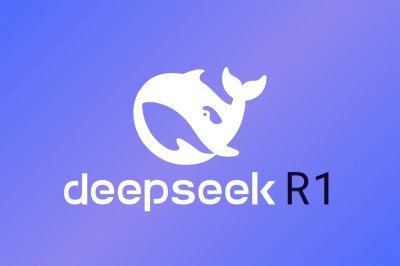Google's AI Mode Expands Globally: Five New Languages Added, Boosting Accessibility and Reach
@devadigax08 Sep 2025

Google continues its aggressive push into the global AI market, announcing the addition of five new languages to its AI Mode. The expansion, reported by TechCrunch, significantly broadens the accessibility of Google's generative AI capabilities, bringing its powerful tools to a wider audience and solidifying its position as a major player in the rapidly evolving landscape of multilingual AI. The newly supported languages include Hindi, Japanese, and Korean, alongside two others yet to be officially revealed.
This strategic move demonstrates Google's commitment to inclusivity and global reach in the AI sphere. While many large language models (LLMs) initially focused on English, the increasing demand for multilingual AI is undeniable. Businesses operating internationally and individuals seeking access to AI tools in their native tongues are driving this shift. By incorporating Hindi, Japanese, and Korean—languages spoken by billions worldwide—Google is tapping into significant untapped markets and empowering users who previously lacked access to such sophisticated AI technology.
The addition of these languages is a considerable technical achievement. Training LLMs to effectively understand and generate text in diverse languages requires vast amounts of data and significant computational resources. Each language presents unique linguistic challenges, from different sentence structures and grammar rules to nuanced cultural contexts. Overcoming these challenges showcases Google's advanced capabilities in natural language processing (NLP) and its commitment to investing heavily in research and development in this field.
This expansion has significant implications for various sectors. In the business world, multinational corporations can leverage AI Mode for tasks such as translation, content creation, and customer service in multiple languages, enhancing efficiency and streamlining global operations. In education, students and educators can utilize AI-powered tools for language learning, research, and content creation, fostering a more inclusive and globally connected learning environment.
The accessibility of AI Mode in various languages will also benefit researchers and developers. By providing a platform for diverse language processing, Google facilitates further research and development in multilingual AI, potentially leading to breakthroughs in machine translation, cross-lingual information retrieval, and other related fields. This open-source contribution to the advancement of the global AI community is a key component of Google's strategic AI positioning.
Beyond the immediate impact, Google's move indicates a broader trend in the AI industry. As competition intensifies, companies are increasingly recognizing the importance of multilingual AI to capture a larger share of the global market. We are likely to see other major players follow suit, investing in expanding the language support of their own LLMs and AI-powered tools. This will accelerate the development and adoption of truly global AI solutions, breaking down language barriers and promoting greater inclusivity in technology.
The impact of this expansion goes beyond simply adding new languages. It also reflects a growing awareness of the need for AI systems that are not only accurate but also culturally sensitive. Successfully implementing AI in diverse linguistic contexts requires carefully considering the nuances and complexities of each language and its associated culture. Google's commitment to this aspect suggests a more responsible and ethical approach to AI development, a crucial consideration in an increasingly interconnected world.
While the two additional languages remain undisclosed, their inclusion further emphasizes Google's dedication to comprehensive global reach. The strategic selection of languages, likely based on factors like population size, economic importance, and existing user base, points to a calculated expansion strategy aimed at maximizing impact and user engagement. This rollout serves as a significant benchmark for the AI industry, setting a high bar for other companies striving for global dominance in the fiercely competitive AI landscape. The future of AI appears increasingly multilingual, and Google is taking a leading role in shaping that future.
This strategic move demonstrates Google's commitment to inclusivity and global reach in the AI sphere. While many large language models (LLMs) initially focused on English, the increasing demand for multilingual AI is undeniable. Businesses operating internationally and individuals seeking access to AI tools in their native tongues are driving this shift. By incorporating Hindi, Japanese, and Korean—languages spoken by billions worldwide—Google is tapping into significant untapped markets and empowering users who previously lacked access to such sophisticated AI technology.
The addition of these languages is a considerable technical achievement. Training LLMs to effectively understand and generate text in diverse languages requires vast amounts of data and significant computational resources. Each language presents unique linguistic challenges, from different sentence structures and grammar rules to nuanced cultural contexts. Overcoming these challenges showcases Google's advanced capabilities in natural language processing (NLP) and its commitment to investing heavily in research and development in this field.
This expansion has significant implications for various sectors. In the business world, multinational corporations can leverage AI Mode for tasks such as translation, content creation, and customer service in multiple languages, enhancing efficiency and streamlining global operations. In education, students and educators can utilize AI-powered tools for language learning, research, and content creation, fostering a more inclusive and globally connected learning environment.
The accessibility of AI Mode in various languages will also benefit researchers and developers. By providing a platform for diverse language processing, Google facilitates further research and development in multilingual AI, potentially leading to breakthroughs in machine translation, cross-lingual information retrieval, and other related fields. This open-source contribution to the advancement of the global AI community is a key component of Google's strategic AI positioning.
Beyond the immediate impact, Google's move indicates a broader trend in the AI industry. As competition intensifies, companies are increasingly recognizing the importance of multilingual AI to capture a larger share of the global market. We are likely to see other major players follow suit, investing in expanding the language support of their own LLMs and AI-powered tools. This will accelerate the development and adoption of truly global AI solutions, breaking down language barriers and promoting greater inclusivity in technology.
The impact of this expansion goes beyond simply adding new languages. It also reflects a growing awareness of the need for AI systems that are not only accurate but also culturally sensitive. Successfully implementing AI in diverse linguistic contexts requires carefully considering the nuances and complexities of each language and its associated culture. Google's commitment to this aspect suggests a more responsible and ethical approach to AI development, a crucial consideration in an increasingly interconnected world.
While the two additional languages remain undisclosed, their inclusion further emphasizes Google's dedication to comprehensive global reach. The strategic selection of languages, likely based on factors like population size, economic importance, and existing user base, points to a calculated expansion strategy aimed at maximizing impact and user engagement. This rollout serves as a significant benchmark for the AI industry, setting a high bar for other companies striving for global dominance in the fiercely competitive AI landscape. The future of AI appears increasingly multilingual, and Google is taking a leading role in shaping that future.
Comments
Related News

Beyond the Mic: Instagram Denies Eavesdropping, But AI's Predictive Power Redefines Digital Privacy
@devadigax | 01 Oct 2025
@devadigax | 01 Oct 2025

Microsoft 365 Premium Redefines AI Productivity, Bundling Copilot to Rival ChatGPT Plus Pricing
@devadigax | 01 Oct 2025
@devadigax | 01 Oct 2025

Wikimedia's Grand Vision: Unlocking Its Vast Data Universe for Smarter Discovery by Humans and AI
@devadigax | 30 Sep 2025
@devadigax | 30 Sep 2025

Google Drive Fortifies Defenses with New AI-Powered Ransomware Detection
@devadigax | 29 Sep 2025
@devadigax | 29 Sep 2025

The DeepSeek Phenomenon: Unpacking the Viral AI Chatbot from a Leading Chinese Lab
@devadigax | 29 Sep 2025
@devadigax | 29 Sep 2025
 AI Tool Buzz
AI Tool Buzz